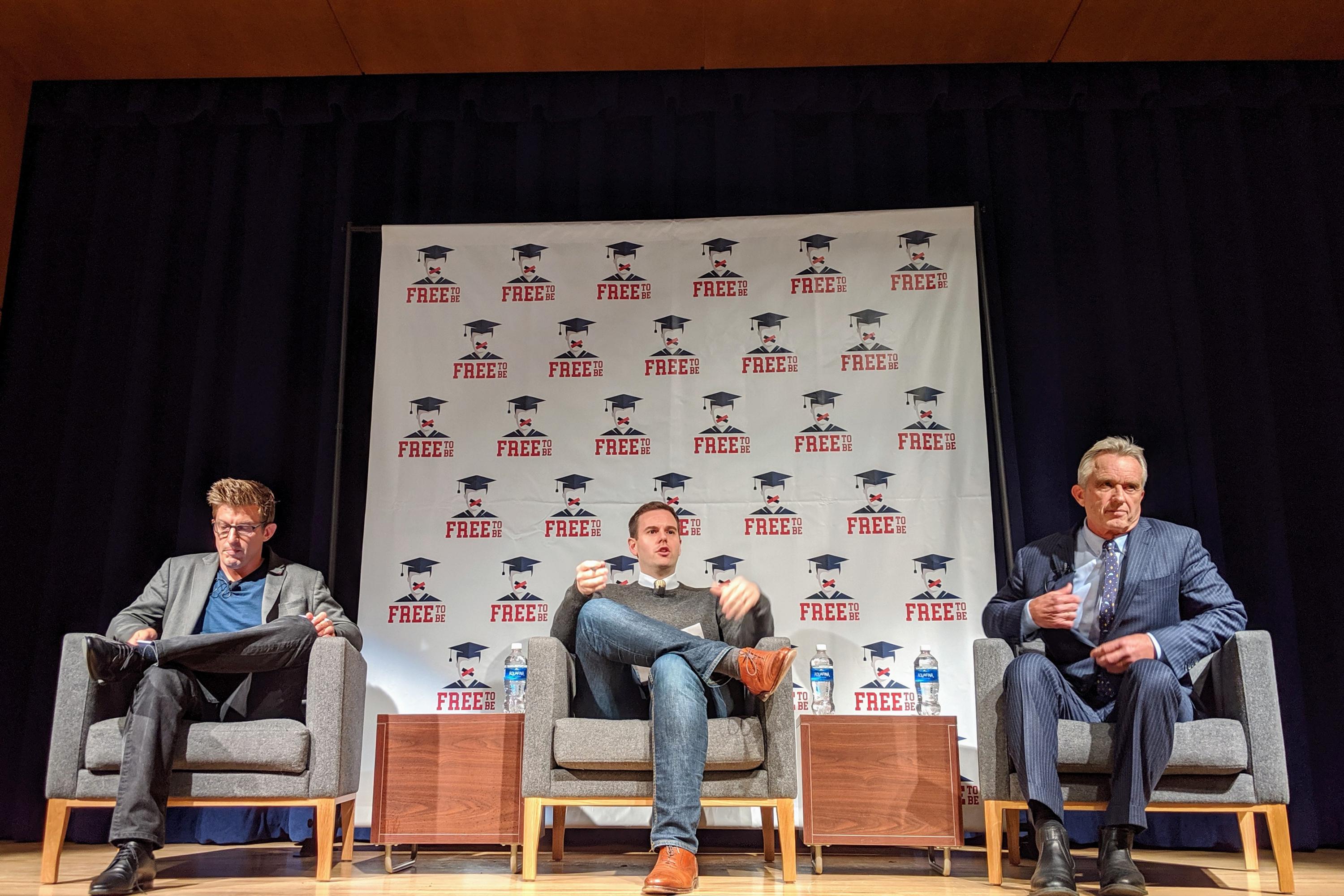
If you think you’ve heard every argument about climate change, you weren’t at a debate at CU Boulder on Monday.
It pitted Alex Epstein, a leading conservative voice on climate change and the author of "The Moral Case For Fossil Fuels," against Robert F. Kennedy Jr., an environmentalist likely best known as a leader in the anti-vaccine movement.
The question before them: “Should the world radically restrict fossil fuels to prevent climate change?”
Epstein’s answers revealed how some on the right have shifted tactics on climate change. Rather than focusing on science, he emphasized all the good fossil fuels have done for humanity — and what society may have to give up to move to alternatives.
A few hundred people packed a vast auditorium on campus to hear Epstein and Kennedy square off. Many worked in the oil and gas industry and wore “I Love Fossil Fuels” or “Colorado Energy Strong” buttons. Some paid $300 to attend a VIP meet-and-greet ahead of the event, stocked with wine and chocolate mousse cups.
Fox News contributor Guy Benson moderated the debate. Right at the start, he told the audience that he’s a “center-right” kind of guy, then added another point.
“We're not up here debating whether climate change exists,” he said before shifting into an impression of President Donald Trump with a single finger framing either side of his face. “There's no one up here saying: ‘It's a total hoax made up by China.’"
That comment won a laugh from Epstein, who wore a gray blazer and read notes off of an iPad. A philosopher and a past fellow of the Ayn Rand Institute, Epstein is now the founder and director of the Center for Industrial Progress, a for-profit think tank.
Epstein’s main argument is that eliminating fossil fuels would come at a major cost to “human flourishing.” In particular, he said it would deny the world’s poorest access to cheap, reliable energy.
“If we want more people in the world to have long, healthy, opportunity-filled lives, we need to continue our massive use of fossil fuels,” he said. “And we actually need to expand it.”
Epstein has been tagged as a climate denier in the past. While he rejects the label, he did quibble with some widely accepted points of climate science during the debate.
For example, he said he believes humans have contributed to “some warming” but not “run-away, catastrophic warming.” Scientists have long connected human society to a rapid rise in atmospheric carbon. The latest report from the United Nations’ Intergovernmental Panel On Climate Change also warns of the major toll climate change could take on humans, by fueling things like food shortages and massive wildfires, no later than 2040.
As a debate opponent, Kennedy largely shared Epstein’s admiration for free-market capitalism. While he said he doesn’t support a radical restriction of fossil fuels, he is in favor of market-based solutions like a price on carbon. Such a policy, he said, would force companies to cover the cost of greenhouse gas emissions, rather than passing those costs to the public.
“Cleaning up your mess is a lesson we were all supposed to learn in kindergarten,” he said.
At some points, Kennedy also veered off track and tried to debate Epstein about vaccines.
Republican CU Regent Heidi Ganahl founded the Free To Be Coalition, the campus free-speech group that organized the debate. When asked why her group chose two such controversial participants, she said the students involved wanted to bring intellectual diversity to campus.
“We need to stop labeling people and start listening to people,” she said.
Cory Katuna, a 28-year-old CU alumna who attended the event, was glad she got the chance to hear out Epstein. While she said she didn’t agree with all of his points, he did manage to break her out of what she called a “liberal bubble.”
“I do hear a lot of the same stuff from the left and I’m starting to get skeptical,” she said.
In Epstein, she saw someone who hadn’t bought into the dogma and offered an optimistic picture of humanity. It reminded her of Ben Shapiro or Jordan Peterson, two right-wing intellectuals she follows online.
At the very least, she said she’d make a point to check out Epstein’s podcast.








